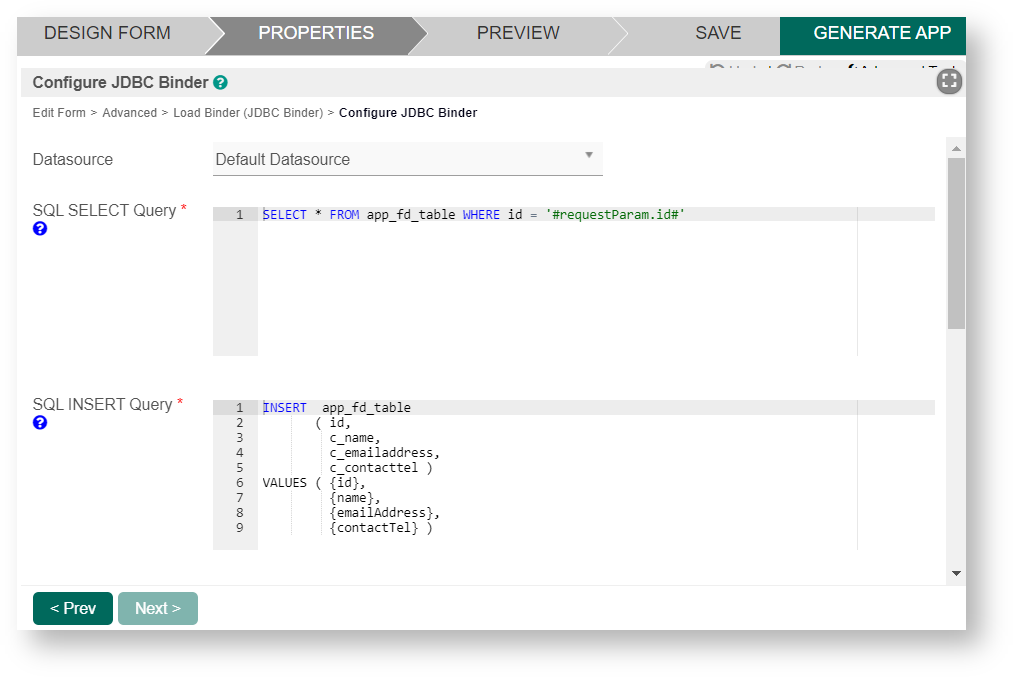...
| Name | Description | Screens (Click to view) | |||||||||||||||||
|---|---|---|---|---|---|---|---|---|---|---|---|---|---|---|---|---|---|---|---|
| Store Binder | JDBC Binder selected (See Figure 1). |
| |||||||||||||||||
| Datasource |
By selecting Default Datasource, the database your Joget is currently using will be selected. (See Figure 3). | ||||||||||||||||||
| Custom JDBC Driver | Custom JDBC Driver. This field is required when Custom Datasource is selected in Datasource above. Example: com.mysql.jdbc.Driver | ||||||||||||||||||
Custom JDBC URL | Custom JDBC URL. This field is required when Custom Datasource is selected in Datasource above. Example: | ||||||||||||||||||
Custom JDBC Username | Custom JDBC Username. This field is required when Custom Datasource is selected in Datasource above. | ||||||||||||||||||
Custom JDBC Password | Custom JDBC Password. This field is required when Custom Datasource is selected in Datasource above.
| ||||||||||||||||||
| SQL SELECT Query for store binder | The SQL query specific to your database type (MySQL, MSSQL, Oracle, etc.). Use syntax like {field_id} in query to inject submitted form data.
Note: If you use JDBC in a form grid or spreadsheet for load or save binder, be advised the SQL syntax is different from form load or save binder. Kindly download and view the sample app for JDBC in a form grid or spreadsheet. | ||||||||||||||||||
| SQL INSERT Query | Use syntax like curly brackets {field_id} in query to inject submitted form data.
You can use {uuid} to tell Joget to create a random unique id or a "Universally unique identifier". Example:
| ||||||||||||||||||
| SQL UPDATE Query | Use syntax like curly brackets {field_id} in query to inject submitted form data.
| ||||||||||||||||||
| SQL DELETE Query | SQL statement to delete form data records in Datalist/Grid element. Use syntax like curly brackets {id} in query to inject form data primary key value.
| ||||||||||||||||||
| Handling for field workflow variable? | Click to select checkbox if you are using workflow variables mapping in your form elements. Not applicable for grid elements.. The JDBC binder will copy the field value to the workflow variable when you submit the form, if the form is mapped to a process. Not applicable for grid elements. | Note: For Joget versions v5 and v6, kindly note that the JDBC load/save binders cannot be used if your form or form grid has file or image attachment field elements or if you are using workflow variables mappings in your form elements. Default to Multirow Form Binder. | |||||||||||||||||
Handling for uploaded files? | Click to select checkbox if you are using file or image attachments in your form elements. |
...
